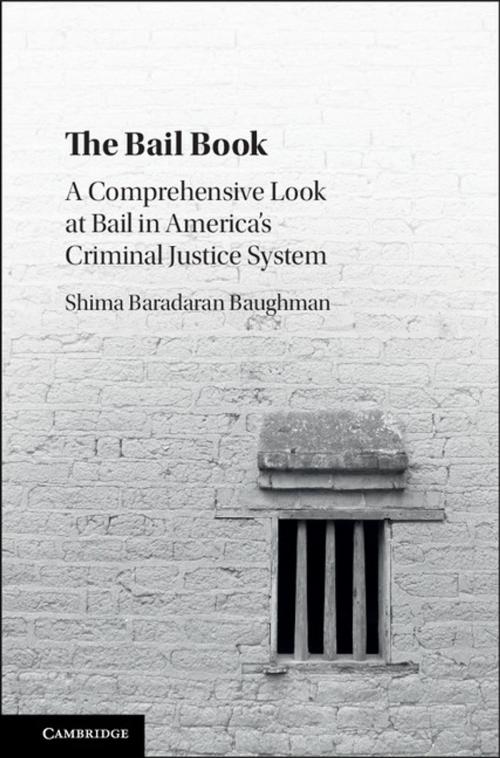The Bail Book
A Comprehensive Look at Bail in America's Criminal Justice System
Nonfiction, Reference & Language, Law, Criminal law, Social & Cultural Studies, Social Science| Author: | Shima Baradaran Baughman | ISBN: | 9781108547345 |
| Publisher: | Cambridge University Press | Publication: | December 21, 2017 |
| Imprint: | Cambridge University Press | Language: | English |
| Author: | Shima Baradaran Baughman |
| ISBN: | 9781108547345 |
| Publisher: | Cambridge University Press |
| Publication: | December 21, 2017 |
| Imprint: | Cambridge University Press |
| Language: | English |
Mass incarceration is one of the greatest social problems facing the United States today. America incarcerates a greater percentage of its population than any other country and is one of only two countries that requires arrested individuals to pay bail to be released from jail while awaiting trial. After arrest, the bail decision is the single most important cause of mass incarceration, yet this decision is often neglected since it is made in less than two minutes. Shima Baradaran Baughman draws on constitutional rights and new empirical research to show how we can reform bail in America. Tracing the history of bail, she demonstrates how it has become an oppressive tool of the courts that disadvantages minority and poor defendants and shows how we can reform bail to alleviate mass incarceration. By implementing these reforms, she argues, we can restore constitutional rights and release more defendants, while lowering crime rates.
Mass incarceration is one of the greatest social problems facing the United States today. America incarcerates a greater percentage of its population than any other country and is one of only two countries that requires arrested individuals to pay bail to be released from jail while awaiting trial. After arrest, the bail decision is the single most important cause of mass incarceration, yet this decision is often neglected since it is made in less than two minutes. Shima Baradaran Baughman draws on constitutional rights and new empirical research to show how we can reform bail in America. Tracing the history of bail, she demonstrates how it has become an oppressive tool of the courts that disadvantages minority and poor defendants and shows how we can reform bail to alleviate mass incarceration. By implementing these reforms, she argues, we can restore constitutional rights and release more defendants, while lowering crime rates.















